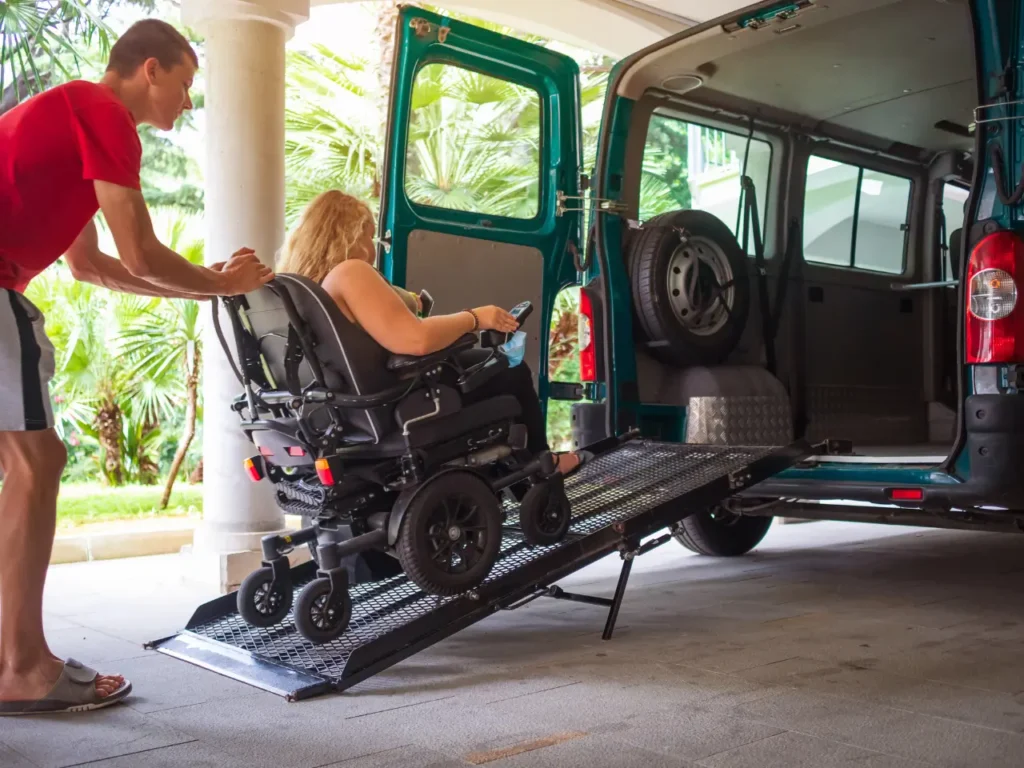Updated on June 14, 2024

Who is Eligible For NDIS Funding?
Australians or permanent residents between the ages of 7 and 65. Disabled persons within this age bracket are provided with funding packages by the National Disability Insurance Scheme to help them access support to live with a permanent disability.
These funds allow people with disabilities to access support workers who can help with daily tasks, buy special equipment that is specific to their disabilities, and access certain treatments that can reduce future problems.
This does not replace income, instead, it provides financial means and removes the financial burden to complete tasks, achieve daily goals, and access community areas, that cannot be accessed due to the disability. Also, the NDIS packages are reviewed annually by an NDIS planner in correlation with the person receiving the support.
How Long Does It Take To Get NDIS Funding?
If you’re 7 or older, NDIS aims to approve your plan within 56 days after you become a participant. For children younger than 7, it’s within 90 days after you become a participant.
If there are extra documents or assessment requirements, these processes may take a little longer, but all this is to ensure everything aligns with your will.
What Can NDIS Funds Be Used For?
The most important things you may want to spend your NDIS funds on include assistance with daily living like eating, dressing, showering, cooking, and keeping the house tidy. These things are activities one may not be able to do, as a result of disability.
Other categories of support that the NDIS fund supports include:
- Transport funding
- Home modifications
- Coordination of Support
- Improved Living Arrangements
- Finding and Keeping a Job
- Assistance with Daily Life
- Consumables
Somewhat Surprising Things People Use NDIS Funding For
1. Assistance and Companion to Entertainment Events
The NDIS funding allows persons with disabilities to have access to community events and actively engage in them. These events may include seeing a live band, going to an art gallery, or going to the movies.
This is because having a disability may make attending all these kinds of events challenging physically, and as a result, you may require the help of a support worker, not only for assistance but also as a companion to all these events.
You may have access to a companion card for your support worker, one that allows them free entry to these events. Your NDIS funding is also available, to both engage the help of a support worker and grant you free access to whatever event you would be attending.
2. Taking Care of Pets
Pets are known to be important members of one’s household, providing company, entertainment, and loyalty. However, this can become a big problem when it comes to feeding, attending to them, and taking them for a walk if their owner is disabled, and that is where a support worker comes in.
3. Gardening
Gardening is another surprising thing, that the NDIS can provide support for, for you. If you have a beautiful garden that you tend to but need assistance with, it can be covered by the NDIS.
This is because gardening is something important that your disability may hinder you from managing independently, and as a result, you can hire the assistance of an NDIS worker to keep watch on that, for you.
4. Learning A Hobby
The great part about hiring support workers by yourself with an NDIS plan is that you connect and employ people who share the same hobbies, values, and ideas as you.
You can hire support workers to teach you a new hobby, such as gardening, arts and crafts, or better still, you can have them accompany you to a class if you share similar interests.
Although your funding may not cover the hobby, it will cover the support worker’s payment, the one who will teach or help in learning these hobbies. Many disability support centres allow you to speak to a support worker beforehand, so you can connect with someone you feel is right for you.
This makes the hiring process easier and enjoyable as you can spend time with someone who loves the same thing as you.
5. Transport From A Support Worker
Although many taxis and bus companies offer NDIS-funded trips and transport, it is better to have a trusted support worker who has their car and can give you a ride all around town if need be. This facilitates bonding and trust.
Can You Have A Home Care Package And NDIS?
No. Although in some cases, one can apply for both the NDIS and the Home Care Package, this mainly depends on age.
If you are 65 years and older, you can apply for a Home Care Package, but you are no longer eligible for the NDIS because, for each program, there are different criteria available, that a person must meet to be considered eligible for that program.
Simply put, you cannot be in both programs at the same time. If you are 65 and above and want to live independently, then you can apply for the Home Care Package. But, if you are a young person with a disability, it is advisable to apply for the NDIS first.
Conclusion
If you self-manage your funds, you can decide what support workers you want to have assist you, and also decide, what reason you are employing them for.
The most important thing is figuring out the right thing to do with your NDIS funds, and even better, discovering how much better options you have when you eventually have the NDIS funds.
Looking for reliable and trustworthy care services?
At Centre Disability Support, we offer tailored support services for individuals with disabilities throughout Australia. We offer housing options in Logan, Ipswich and Brisbane areas, where we provide independent supported living or assist individuals in finding suitable options for individualised living.
Additionally, we provide day-to-day support for individuals with mental health issues, complex behaviour and other types of disabilities. We also have support coordinators available to assist with planning, navigating NDIS plans, and offering casework support.
Whether you’re seeking support for yourself, or a loved one, or simply wish to learn more about our services, we’re here to help.
RELATED
PACE: An Overview for NDIS Participants
NDIS Plan Managed vs Self-Managed
Supported Independent Living Vacancies
Does Medicare Cover Assisted Living?
How Does Assisted Living Work Financially?
4 Benefits of Individual Living Options (ILO) for People with Disabilities



